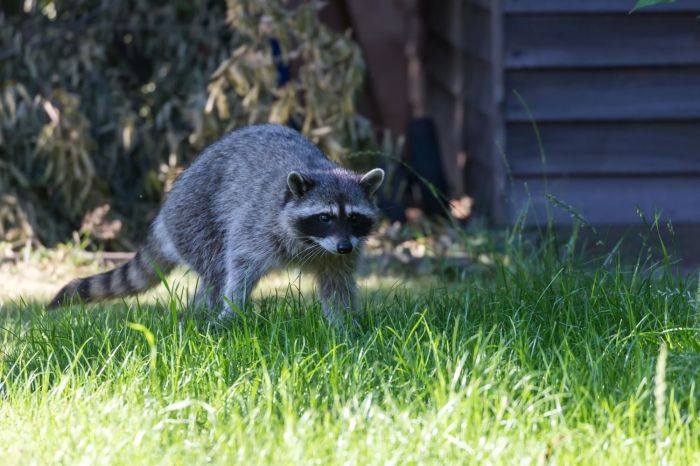
Raccoons can be a significant nuisance for garden enthusiasts, often digging up plants and raiding plots for food. A combination of physical barriers, repellents, and habitat modification is essential to keep raccoons out of your garden. Understanding their behaviors can help gardeners develop effective strategies that deter these clever creatures.
Implementing fencing, motion-activated lights, and noise deterrents can create an inhospitable environment for raccoons. Additionally, using scents that raccoons find unpleasant or planting specific herbs can discourage their visits. Gardeners should also consider securing trash containers and removing potential food sources that attract these animals.
With the proper knowledge and techniques, anyone can protect their garden from raccoon invasions. They can preserve their plants and enjoy a thriving garden free from unwanted visitors by taking proactive steps. Additionally, homeowners should strongly consider enlisting the help of a professional raccoon removal service.
Understanding Raccoon Behavior
Recognizing raccoon behavior can significantly help prevent damage to gardens. This includes knowing their preferred habitats, diet, and signs of their presence.
Raccoon Habitats and Diet
Raccoons thrive in diverse environments, often choosing habitats near water sources such as rivers or ponds. Urban areas also provide ample food and shelter, leading raccoons to adapt well to human landscapes. They are known to den in attics, garages, or beneath decks, making these spots common entry points when they seek shelter.
Raccoons are omnivorous and have a varied diet. They eat fruits, vegetables, nuts, and insects, frequently raiding gardens for ripe produce. Their dexterous front paws enable them to open containers or manipulate objects, making gardens a prime target. Homeowners should consider how their garden offerings might attract raccoons.
Signs of Raccoon Presence
Detecting raccoon activity can prevent further issues. Common signs include overturned trash cans, dug-up plants, and raccoon tracks, characterized by their hand-like paws with five toes. These tracks often appear in mud or loose soil.
Other indicators include dark feces that resemble dog droppings and often contain indigestible materials like seeds and fur. Noisy disturbances at night can also signal raccoon presence, as they are primarily nocturnal. Monitoring these signs helps in taking proactive measures against potential garden invasions.
Raccoon-Proofing Your Garden

Implementing effective raccoon-proofing measures can significantly reduce the likelihood of these animals raiding a garden. Physical barriers and optimizing garden layout are vital strategies to protect plants and crops from raccoons.
Physical Barriers
Installing physical barriers is one of the most straightforward methods of keeping raccoons out. Fencing can be highly effective, but specific requirements must be met for maximum efficiency. A fence should be at least 4-6 feet tall and extend 12 inches underground to prevent digging.
Consider these materials for a robust barrier:
- Chain Link Fencing: Durable and hard to climb.
- Wooden Fences: A solid option, but ensure no gaps.
- Electronic Fencing: Repels with a mild shock when approached.
Adding a top barrier, such as barbed wire or an inward-sloping extension, helps deter climbing. To maintain effectiveness, regularly inspect for damage.
Garden Layout Optimization
Optimizing garden layout simplifies raccoon deterrence by making the environment less inviting. Planting fragrant herbs or flowers can repel raccoons due to their sensitive noses.
Strategic tips include:
- Placement of Plants: Arrange vulnerable plants away from dense cover where raccoons could hide.
- Elevation: Utilize raised beds to make access more challenging.
- Limiting Food Sources: Keep trash secured and compost bins closed to avoid attracting raccoons.
Creating an open area around the garden improves visibility, making it less appealing to raccoons looking for shelter or food. Adjusting these elements can make significant strides in protecting the garden from raccoons.
Implementing Deterrent Strategies
Effective deterrent strategies are crucial for keeping raccoons out of the garden. Combining natural repellents and technological solutions offers practical methods to prevent these animals from invading your space.
Natural Repellents
Natural repellents can be an effective first line of defense against raccoons. Common choices include:
- Cayenne Pepper: Sprinkling cayenne pepper around the garden creates an unpleasant environment for raccoons. Its intense heat discourages raiding.
- Vinegar: The strong scent of vinegar, when sprayed around the garden perimeter, can deter raccoons. Reapplication after rain is necessary to maintain effectiveness.
- Predator Urine: Available at garden centers, predator urine mimics the presence of natural threats, such as coyotes. Applying it sparingly around vulnerable areas irritates raccoons and keeps them away.
Additionally, scent-based solutions like garlic or citrus peels can also repel raccoons. Regular application boosts deterrent effectiveness.

Technological Solutions
Technological deterrents enhance protection against raccoons through various mechanisms. Options include:
- Motion-Activated Sprinklers: These devices detect movement and release a burst of water, startling animals. Effective placement in garden entry points optimizes results.
- Ultrasonic Repellers: These emit high-frequency sounds unpleasant for raccoons but inaudible to humans. Installing these near garden areas creates a sonic barrier.
- Electric Fencing: A low-voltage electric fence can protect gardens. To prevent raccoon intrusions, it must be configured correctly, with sufficient height and adequate grounding.
Combining these technological measures with natural repellents enhances the deterrent effect and ensures a raccoon-free garden.
When to Seek Professional Help
Homeowners who observe persistent raccoon activity in their gardens may need to consider professional help. Repeated breaches of barriers like fences are signs of a larger issue.
Signs that indicate it's time to contact professionals include:
- Frequent Damage: Regular destruction of plants or garden structures.
- Health Risks: Presence of raccoon droppings or urine poses health hazards.
- Injury Risk: If efforts to deter them lead to potential harm to pets or children.
Professional raccoon removal services can offer effective solutions. They possess specialized skills and tools to address infestations safely and humanely.
It's essential to act quickly to prevent the situation from worsening. Ignoring raccoons can lead to increased damage and further complications.
In addition, local regulations often require that wildlife removal be conducted by licensed professionals who are knowledgeable about animal control laws.
Seeking assistance ensures that raccoons are removed safely, reducing the risk of injury or legal issues.














